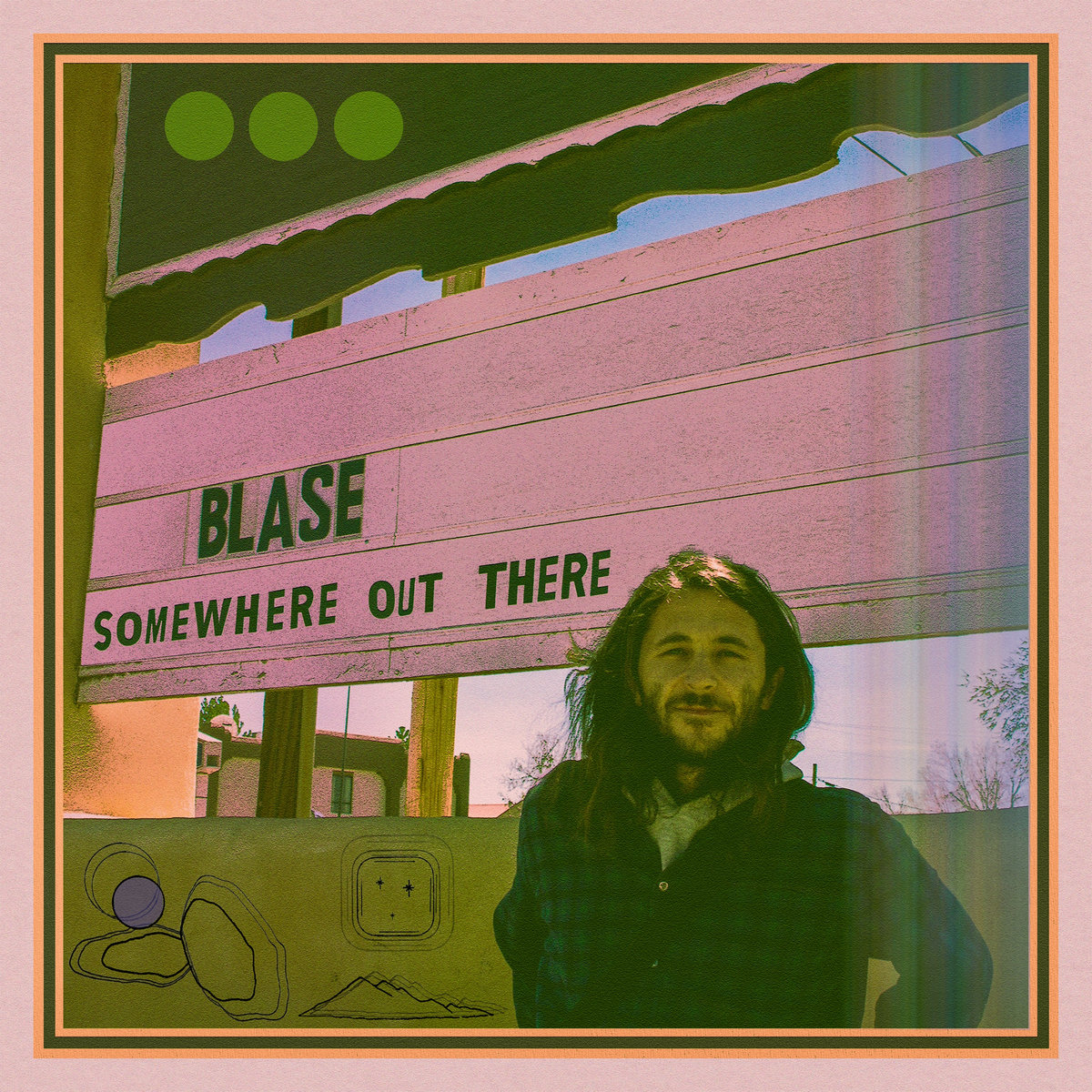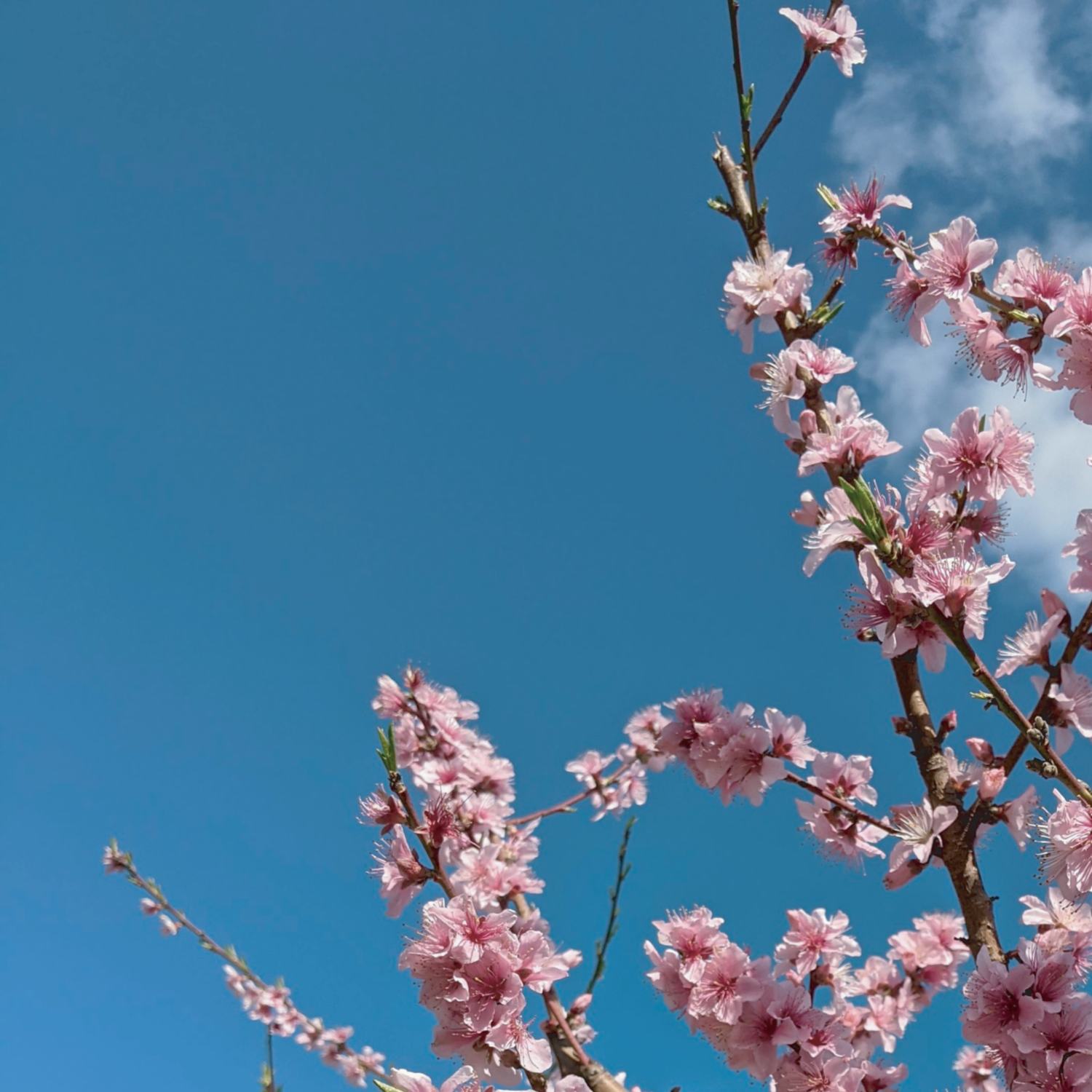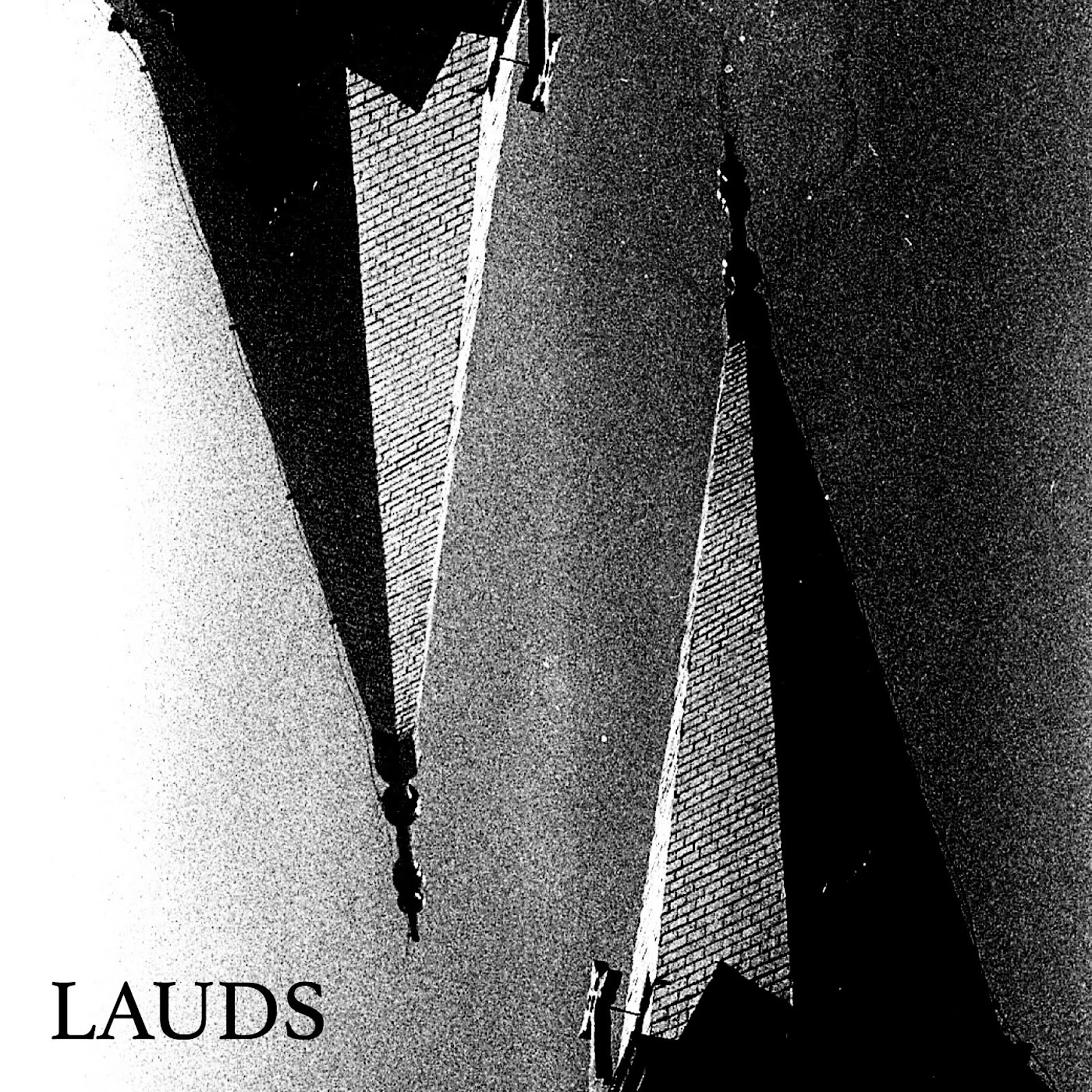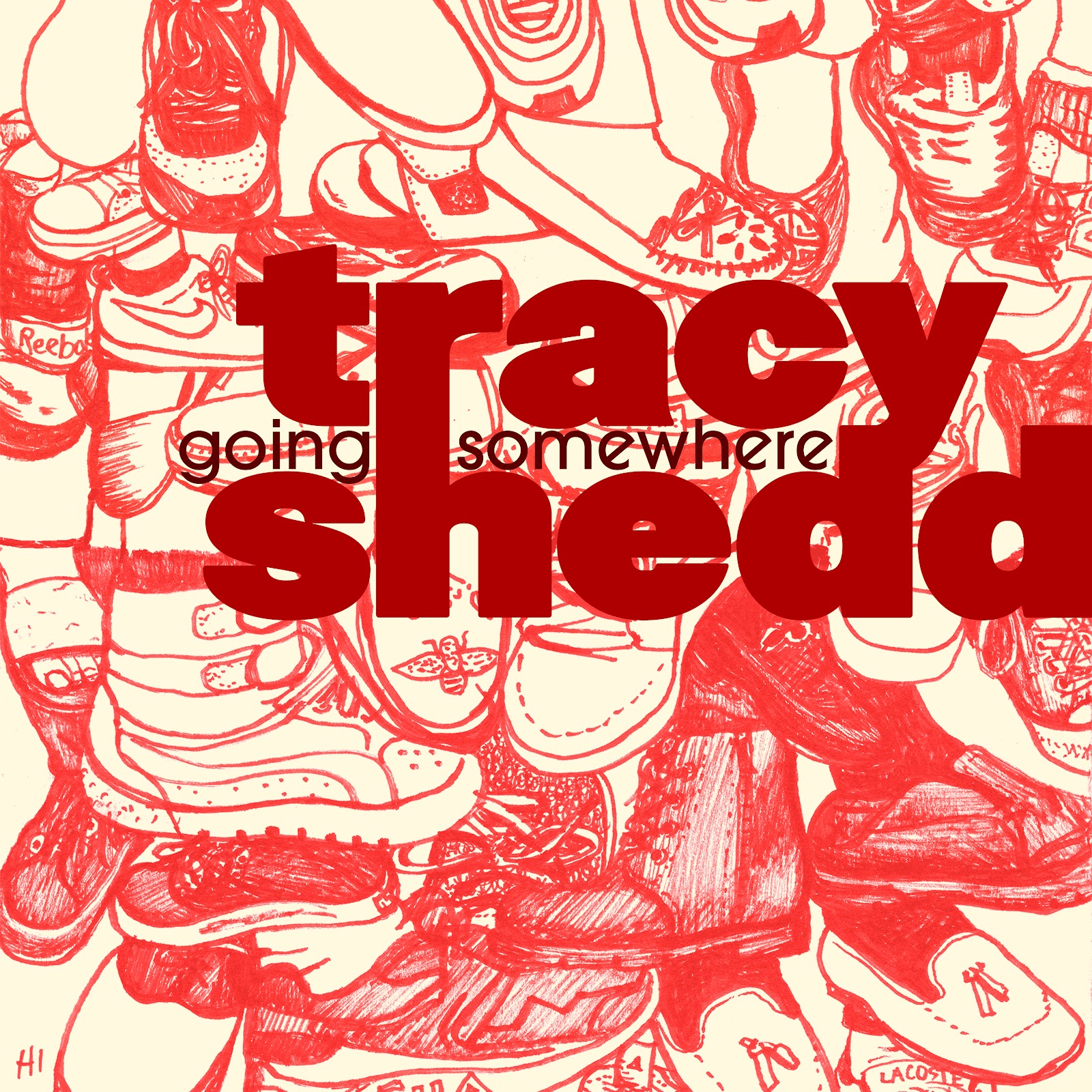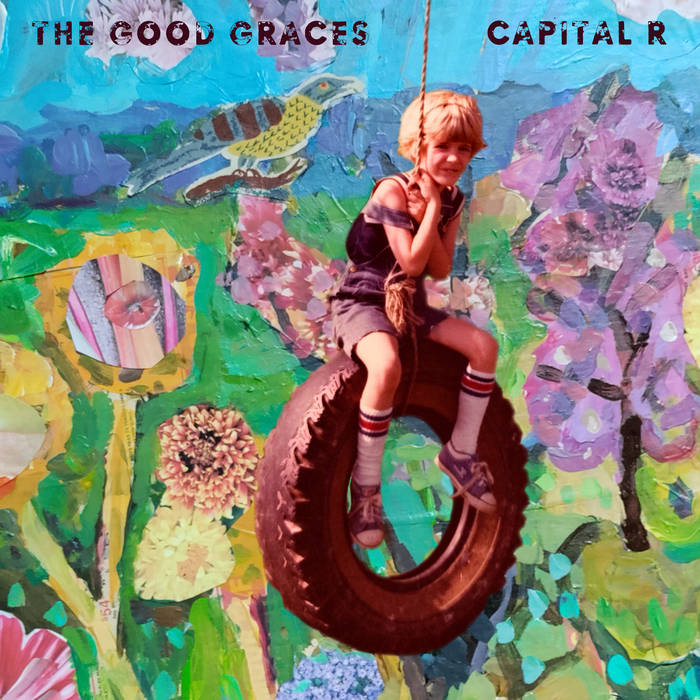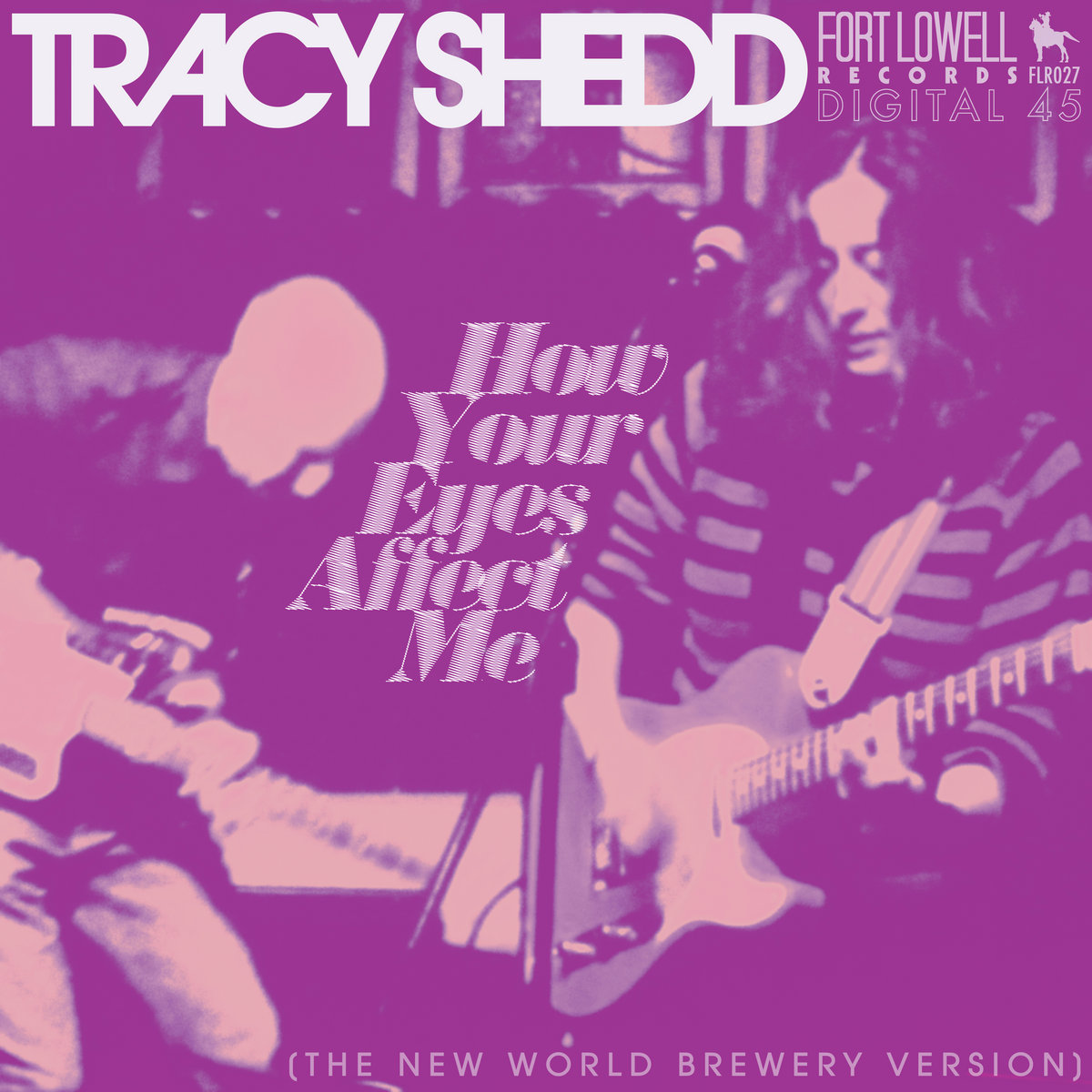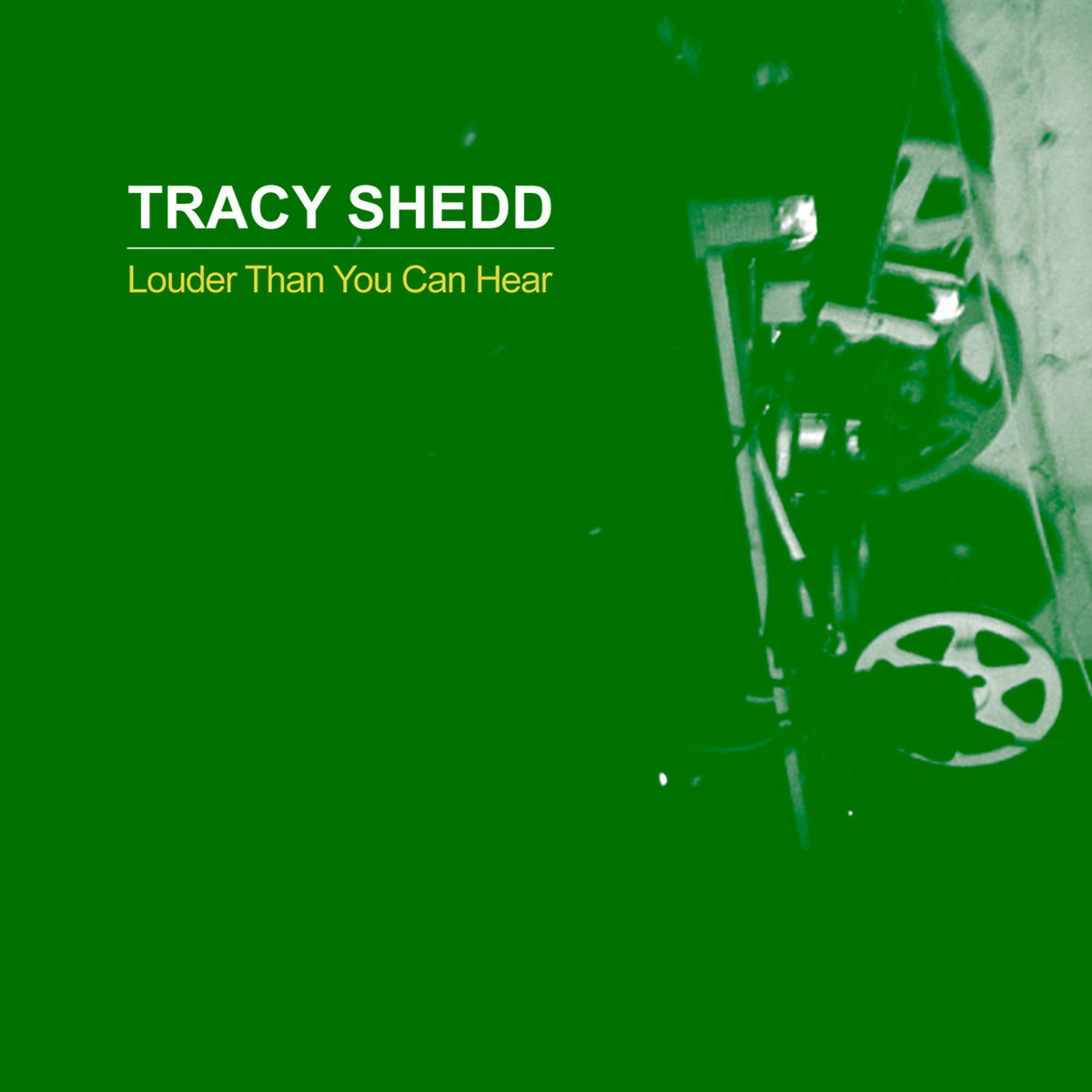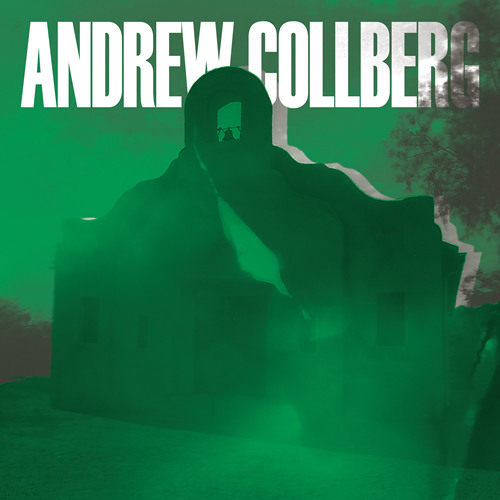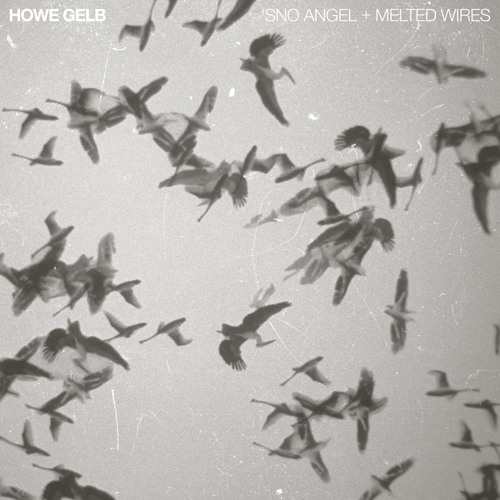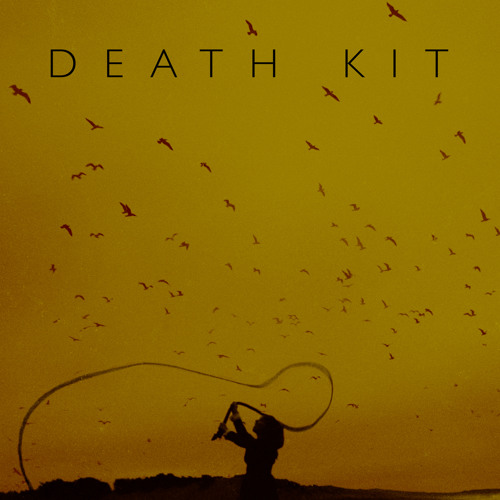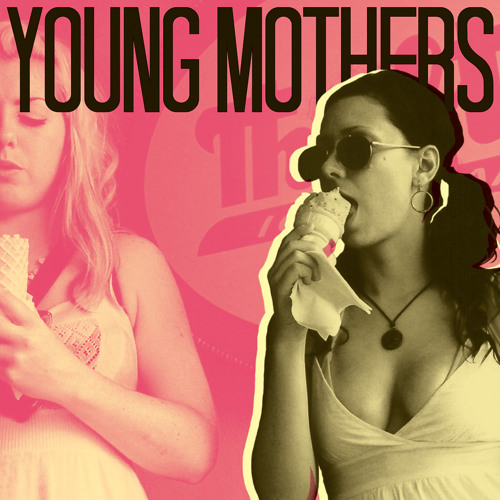EVENT CALENDAR
Showing posts with label JPW. Show all posts
Showing posts with label JPW. Show all posts
Friday, December 26, 2025
Monday, September 29, 2025
Best Of Phoenix 2025 | BEST ALBUM: JPW & Dad Weed Amassed Like a Rat King
[Repost from Phoenix New Times; September 25, 2025]
BEST ALBUM: JPW & Dad Weed Amassed Like a Rat King
Like chocolate and peanut butter cozying up in a candy bar, the union of musicians JPW (Jason Patrick Woodbury) and Dad Weed (Zachary Toporek), who created this fantastic offering, also results in a sweet treat. Released in April on Fort Lowell Records, the 11-song "Amassed Like a Rat King" sounds and feels like the intersection of several pertinent moments in music: the breezy spirit of '70s light rock, gritty '80s radio rock a la Tom Petty, and those jangly moments of R.E.M. before they emerged from the shadows. We felt like pulling out some Posies records after the first listen. Instead, we simply took "Amassed Like a Rat King" for another few spins. It may be loaded with a variety of inspirational influences, but don't try pinning it to any one style. These expert music-makers crafted a group of tracks brimming with great melodies and catchy riffs and topped them with JPW's rich, earnest vocals. At times, you catch a laugh or feel a spark that underlines the pair's chemistry. We hope a sophomore effort is in the works.
Sunday, June 29, 2025
Here are some new artists you might like for your vinyl record collection
We are very excited about the last round of artists we've had the pleasure of working with these past twelve months for vinyl records we've released on Fort Lowell Records, so we thought to take a moment to highlight a few of them, just in case their awesomeness slipped through the cracks you and didn't quite catch how fantastic these musicians are. Check them out using the information provided below, and if you happen to agree... pick-up a record or three or six to enjoy with your own vinyl collection at home.
JPW + DAD WEED — FOR FANS OF: My Morning Jacket, Steely Dan, Wilco
"Folky psych pop that meets melancholic alt-rock, in a timeless kaleidoscope of sound and sentiment—solid but surprising" ~ Add to Wantlist
JPW + DAD WEED — FOR FANS OF: My Morning Jacket, Steely Dan, Wilco
"Folky psych pop that meets melancholic alt-rock, in a timeless kaleidoscope of sound and sentiment—solid but surprising" ~ Add to Wantlist
KICKING BIRD — FOR FANS OF: Cheap Trick, The New Pornographers, The Pixies
"Quirky indie rock with pop sensibilities and classic rock roots" ~ Faster and Louder
"Quirky indie rock with pop sensibilities and classic rock roots" ~ Faster and Louder
FUZZ JAXX — FOR FANS OF: Common, GangStarr, Nas
"The best freestyle rapper the Port City has ever known" ~ StarNews
"The best freestyle rapper the Port City has ever known" ~ StarNews
TERCEL — FOR FANS OF: Broken Social Scene, Pavement, Superchunk
"A musical aesthetic that juxtaposes jangly indie-rock/post punk with jangle rock/punk" ~ Janglepophub
"A musical aesthetic that juxtaposes jangly indie-rock/post punk with jangle rock/punk" ~ Janglepophub
FOREST FALLOWS — FOR FANS OF: Mac DeMarco, Real Estate, Stereolab
"The warmth but never overheat of summer air blows gently as Mike Barnett and Alex Morton strum soft chords, and sing like the fur of a rabbit in a straw hat" ~ Small Albums
"The warmth but never overheat of summer air blows gently as Mike Barnett and Alex Morton strum soft chords, and sing like the fur of a rabbit in a straw hat" ~ Small Albums
NAÏM AMOR — FOR FANS OF: Nick Cave & The Bad Seeds, JD McPherson, Roy Orbison
"Late 60s Nouvelle Vague soundtrack vibe, spiced up with a bit of noise, a dash of post-rock and Tex Mex" ~ Here Comes the Flood
"Late 60s Nouvelle Vague soundtrack vibe, spiced up with a bit of noise, a dash of post-rock and Tex Mex" ~ Here Comes the Flood
FEMALE GAZE — FOR FANS OF: Broadcast, Sugar Candy Mountain, The Velvet Underground
"Tender Futures explores the desert using empty space and towering nothingness as its language, intentionally evoking haziness and disorientation through psychedelia, post-rock, and even a bit of jazz-rock" ~ Rosy Overdrive
"Tender Futures explores the desert using empty space and towering nothingness as its language, intentionally evoking haziness and disorientation through psychedelia, post-rock, and even a bit of jazz-rock" ~ Rosy Overdrive
Thursday, June 26, 2025
REVIEW: JPW + Dad Weed - Amassed Like a Rat King
[Repost from Doom & Gloom From The Tomb; by Tyler Wilcox, June 9, 2025]
There are a few indie rock standard bearers in the "FOR FANS OF" section of the notes accompanying JPW + Dad Weed's new LP — Wilco, the Flaming Lips, Elephant 6 etc. But then you squint your eyes and see some less commonly referenced influences: LEN, Gin Blossoms ... even the accursed Barenaked Ladies?!! Never fear, Amassed Like a Rat King is far from a BNL tribute record. But the LP does occasionally feel like you've tuned into some mid-1990s alt-rock radio station; indeed, I'm convinced that crunchy, hook-filled songs like "It's Happening" and "Everybody's Talking (Again)" could've been left-field jangle-pop hits back in those bygone days. This is an extremely fun collection, with JPW (AKA Aquarium Drunkard's Jason P. Woodbury) and Dad Weed (AKA multi-instrumentalist Zach Toporek) employing idiosyncratic/inventive production techniques, canny songcraft and an off-beat sense of humor to bring the whole thing to life. The JPW / Dad Weed duo sounds as if they're having a blast throughout — and that, my friends, is what it's all about.
Thursday, June 19, 2025
REVIEW: JPW + Dad Weed deliver the goods on "Amassed Like A Rat King"
[Repost from Phoenix New Times; by Tom Reardon, June 9, 2025]
Jason Woodbury and Zach Toporek (JPW and Dad Weed, respectively) join musical forces for an outstanding first release.
“Amassed Like a Rat King” by JPW + Dad Weed starts off with the coolest, fattest bass line to come from the greater Phoenix area in a long time. The song is the title track from the duo’s killer new record, and as great as the bass line is, it is just the tip of a very catchy, indie pop iceberg.
This particular gem is not about to start sinking any cruise ships, though, so don’t go calling for the lifeboats yet. Once you turn on the song, no one is going anywhere. The rats that Jason P. Woodbury (JPW) sings about in “Amassed Like a Rat King” are too busy boogie-ing their collective asses off to desert any sinking ships thanks to that butt shaking bass groove.
The song was the first track that Woodbury and collaborator Zachary Toporek (the Dad Weed part of the equation) created for the record (released in April on Fort Lowell Records), and it is a reflection of some tall tales told by Woodbury’s uncles in his youth.
“I guess I’m literally reflecting on the nature of a rat king, which is a bunch of rats stuck together inextricably. It’s kind of a gnarly, metal-sounding thing, but really that song in particular is me kind of reflecting on my youth and the machine shop, Cherokee Saw and Tool, that my family owned in Coolidge when I was young,” says Woodbury.
Apparently, an eight-year-old Woodbury liked to wander around the big building, and his uncles would tell him about finding a ‘rat king’ in there to scare him. It’s kind of amazing that such a pop gem came from such a revolting thought, but with a lyricist like Woodbury at the helm, mining life events for lyrical gems is commonplace.
As “Amassed Like a Rat King” continues beyond the title song, the strength of Toporek and Woodbury’s collaboration is palpable. The two played all the instruments and did all the vocals across the 11 tracks, with Toporek engineering the recording prior to handing it off to the incomparable Sam Cohen for mixing.
“We cannot sing Sam’s praises enough because this record sounded pretty good before we sent it to him, but he really understood the vision and took it to 4K,” says Toporek.
“Sam’s credits are vast. He’s worked with Kevin Morby, Danger Mouse and Karen O. — so many people (including Norah Jones, Bob Weir, and Shakira). It was beyond a treat to work with him. He mixed the record at Slow Fawn, his studio in upstate New York,” adds Woodbury.
It’s super charming how much Toporek and Woodbury seem to love working together. Beyond occasionally finishing each other’s sentences and making each other laugh throughout our phone conversation, the two clearly ‘get’ each other as people and musicians. “Amassed Like a Rat King” does not sound like the work of just two Phoenix dudes hanging out and having a good time together, but that’s exactly what the record is and faithfully represents.
While both artists have released recordings separately, Woodbury as JPW, and Toporek as Dad Weed, they have been frequent collaborators in each other’s projects and have played together live on multiple occasions. Each of them brings different talents to the table and appreciates how their strengths and weaknesses balance out.
“I am not good at a lot of the ancillary business stuff like booking. Jason is a lot better at that,” shares Toporek before Woodbury chimes in.
“Honestly, a huge influence on us, both sonically and operationally, is Nick Lowe, Rockpile, and Dave Edmunds; it was all the same guys, but it was presented in different ways. When the set is weighing a little heavier into my tunes, but we might call the show as a JPW show, but with this record, (we) really felt like this was something distinct from our individual projects and the fact that it was the two of us making it made sense that the credit is ‘co’ on everything. We are co-producing, co-writing, and playing it all, so that’s sort of how it came down.”
Together, Woodbury and Toporek have created something that fans of artists like The Shins, Beck, and even a little Dream Syndicate will enjoy. There is a shimmery, summer pop quality to a song like “Everybody’s Talking (Again),” for example, that conjures a collision of dreaminess with the stark reality of life’s more poignant questions.
It sparked a cool bit of conversation from its creators.
Woodbury: We’ve been going back and forth on that one. Zach joked that the song is Christian Rock adjacent. That song is weirdly about church as a young kid, in a certain sense, and Zach had brought up that he felt like it’s about the rapture and everyone is talking about moving away, i.e., going to heaven.
Toporek: And you are thinking about sticking around so maybe you’re not going to get raptured.
Woodbury: Yeah. I think there is truth in that, but I think that the sticking around thing is less about getting left behind. I think what I was trying to say with the song, and sometimes a song presents itself fully formed and is like a full-scale message to yourself from yourself, and when that happens, you are occasionally surprised by the eloquence of what your unknown self is capable of.
The idea that deferring the meaning or the value or the promise of life to the ‘next’ life is unsatisfactory to me. If heaven can exist after we die, then I believe heaven can exist with each other in these little glimpses and little moments.
One of the most interesting parts of the song is the ending, which has some super lush vocal harmonies that soar like classic ’70s radio hits.
“Gordon Lightfoot was the influence for all the melodramatic vocalizations toward the end of the song. I thought it was so much fun. I’m not a cut loose kind of guy when it comes to music, but as a collaborator, it was so much fun to get to that point in the song, and it was kind of joyous,” says Toporek.
The band delivers a slow-dance classic in “Far Off Road,” and then Toporek lets it all hang out with his lead vocal on the bouncy rocker “Frightening.” This one sparked another enlightening chat.
Toporek: I think it started as just a jam. He came up with that bass line, and I ended up going down the rabbit hole and expanding on it a bit. That one is a pretty strong co-write, lyrically, between the two of us. Jason had a couple lines going and I remember doing dishes one day and just thinking where it should go from there and came up with the next verse.
Jason came up with one of my favorite lines on there: ‘I think the map is probably hidden from a certain point of view.’ I kind of just extrapolated that out into trying to feel your way through life blindly, and the frightening thing is, when you look at life, sometimes. ‘Frightening’ for me is kind of what happens when you kind of peek into the hidden room. What does it cost to look within, and whatever the answer is, it frightened the hell out of me.
Woodbury: I think “Frightening” might have started off with the idea that it was a Dad Weed song. It’s one of my favorite vocals from Zach on the whole record. He just really sings the hell out of that song, and it’s really enjoyable.
Toporek: And I’m deeply uncomfortable with it, and I can’t stand to hear it. One hand was on the mouse and ready to hit delete, and the other hand was grabbing it and pulling it away. It really took some self-restraint to actually let myself be myself, which is a very strange sentence.
Woodbury: It is frightening to lean into those supposed or perceived flaws, but we live pathologically in an age when it is very difficult to face things that are very apparent. This record is definitely us reflecting on that and recognizing that the thing that frightens us is the thing that is necessary for us to grapple with, and it just might be the thing that saves us.
Amassed Like a Rat King is a record that has a lot to say, just as Toporek and Woodbury have a lot to say as musicians and two guys making their way in the world today (hello, Mr. Wendt). While it is incredibly thoughtful and in touch with a wide range of emotions, it is also playful, rockin’ and a lot of fun. There is truly a little something for everyone across each and every song.
The penultimate track, “So Brightly There,” is also something of a standout. Like “Far Off Road,” the song provokes the image of a dark room and two figures holding each other closely while immersed in dance.
Woodbury: “So Brightly There” is a song I wrote for my wife, Becky (Bartkowski), that she would like, and she is really the one who pushed for Zach and I to collaborate. She said, ‘You and Zach make a lot of sense as collaborators,’ and she understood that we brought a certain balance to each other on a creative level.
It is the one song from the record that we are not going to try and replicate in the live sense just yet. I’ve never been all that great at writing love songs, but there are at least two certified love songs on this record, and I’m proud that I’m slowly but surely upping my quotient for writing love songs on each record.
Toporek: I think that the concept for the next record should be songs that our wives might actually like. If we played to their tastes more, I think we might get more people to listen to it. When Jason played me “So Brightly There,” I thought, ‘Oh, amazing. You did it. Great job.’ We did a couple of little overdubs, but he brought a fully formed, two-minute and seventeen-second pop banger.
Woodbury (acoustic guitar) and Toporek (drums), who both sing lead and backing vocals on the record, along with guitarist Rick Hines and bassist Andrew Bates, will be performing most of the songs from “Amassed Like a Rat King,” at the release show this weekend. Do yourself a favor and hit the show, and if you can, grab the awesome record on green vinyl from the band, who will have copies for sale throughout the night.
 |
| Dad Weed + JPW |
Tuesday, May 6, 2025
REVIEW: JPW + Dad Weed "It's Happening"
[Repost from Here Comes the Flood; by Hans Werksman, April 28, 2025]
Phoenix, AZ, lo-fi duo JPW & Dad Weed have made a video for It's Happening: "a scuzzy sounding exploration of left-field indie rock, as if the instruments have been gathering dust for a couple of decades. Somehow everything still works, which comes as a surprise for the musicians themselves. The bass and drums only interlude is a 101 for less is more, before giving way to a Tom Verlaine inspired guitar leading the way to a 60s Sci-Fi psych coda." It is a track from their Amassed Like a Rat King album.
Sunday, May 4, 2025
REVEIW: JPW + Dad Weed 'Amassed Like a Rat King'
On the indie rock powerhouse label of Fort Lowell, comes “Amassed Like a Rat King,” via the collaboration between JPW and Dad Weed. Firstly, 1000 points for using “amassed” as part of the title. I’m a word nerd.
Going into this, as I do with a lot of the newest rock material, I don’t really know much about the groups or projects. That actually kinda works out, as I can bounce into the album with zero assumptions outside of what the press kit says. It’s always a nice surprise, trust me. And, yes, this one was a nice surprise.
So, how does this LP sound? Fucking fantastic! Psychedelic indie rock with elements of jangle, pop and it’s certainly got its roots deep in alternative. Like, there’s a solid shot of 90s goodness resting on a foundation of modern alternative rock building blocks. This is the kinda stuff I’d surely hear on my local indie station (especially if I worked there…) or one of my local college stations. Solid. Jam on.
Lyrically, this is some good stuff. A nice mix of catchy zing and graceful pop poetry; it’s the kinda stuff you can easily sing along with, especially in the car with the windows down. Hell yeah. Makes me hungry for a follow-up LP or EP.
If I really had to compare the sound to bands I know, I’d say it’s a mix of Breeders, Primal Scream, Dinosaur Jr, Love Battery, Flaming Lips, and a dash of Arcade Fire. I mean, it’s much, much more than these comparisons, but it’s the best I can say, yeah? Just spin it yourself, and you’ll see it stand out rather nicely on its own.
This gem is pressed on green vinyl. Limited edition of 100. Get it before it’s gone.
Saturday, May 3, 2025
REVIEW: JPW + Dad Weed 'Amassed Like a Rat King'
[Repost from Anna Bartkowski; April 24, 2025]
I grew up with the sounds of the Beatles,the Beach Boys, CCR—some of the greatest music ever recorded. So when I come across new music that instantly resonates with me, I feel compelled to share it.
Full disclosure: I’ve known Jason and Zach for years—Jason is my son-in-law. But that connection alone isn't why I'm raving about their music. It’s because the songs truly deserve it. Give them a listen, and I think you’ll agree: the praise is well-earned.
Amassed Like a Rat King is such a brilliant album—I danced through most of the tracks. Yes, danced! And let’s be honest, we could all use the aerobic boost and endorphin rush that comes with moving to great music. Even my dogs were into it.
Check it out on your favorite streaming service—and keep an eye out, because the green vinyl edition is dropping soon.
Friday, May 2, 2025
REVIEW: JPW & Dad Weed 'Amassed Like a Rat King'
[Repost from Add to Wantlist; by Dennis, April 23, 2025]
New album: JPW & Dad Weed || Amassed Like a Rat King
Desert dreams and cosmic connections
Here we find folky psych pop that meets melancholic alt-rock, in a timeless kaleidoscope of sound and sentiment—solid but surprising.
The Two Against Nurture EP was a promising taster of the collaboration between JPW aka Jason P. Woodbury and Dad Weed aka Zachary Toporek, their first joint full-length Amassed Like a Rat King—the title track is an ode to Woodbury’s rural Arizona upbringing—lives up to expectations. The eleven songs emerged from friendship and mutual admiration, a shared ‘third mind’ situation and studio alchemy led to a captivating audio document of memory and motion. “You could call it God // I think I’d rather not (it’s happening)” we hear in the telling single It’s Happening, set to animations from IBM’s 1958 The Information Machine film. Probably it is the synergy of shared inspiration, creative minds and a cosmic connection?
“What you’re calling out // Makes me feel something” are the final lines of the elastic closing track What If I Were Dying, and that’s just the way it is.
Amassed Like a Rat King is out now digitally and on vinyl LP through Fort Lowell Records.
Sunday, April 27, 2025
REVIEW: JPW & Dad Weed 'Amassed Like a Rat King'
[Repost from Here Comes the Flood; by Hans Werksman, April 22, 2025]
Phoenix, AZ based musicians Jason P. Woodbury and Zachary Toporek hade been eyeing each other's handiwork for more than a decade, before connecting for a joint project, named JPW & Dad Weed. After releasing the Two Against Nurture EP and the It's Happening, their debut full-length Amassed Like a Rat King lives up to its promise, with a wealth of meandering, scuzzy and fuzzy sounding explorations of left-field indie rock.
The funky Frightening sums up their style in nutshell: starting out as borderline radio-friendly tune for parents to pop in the player as they drive the kids to their soccer practice in suburbia, the song makes a sharp left to and comes close to falling apart amidst shattering drums and distorted guitar. JPW & Dad Weed are a duo that will be championed by the knowledgeable staff in independent record stores, who will be more than happy to point all the references and extrapolations. Cool kids of all ages will love it.
Tuesday, April 22, 2025
OUT NOW: JPW + Dad Weed 'Amassed Like a Rat King' [Duet LP]
After 15 years of collaborative experiences and cheering each other on from various distances, Zachary Toporek and Jason P. Woodbury have finally teamed up on Amassed Like a Rat King. Toporek is best known as the leader of 1970s pop-style collective Dad Weed, while Woodbury fronts spooky desert-jangle combo JPW (alongside his work with the eclectic online music magazine Aquarium Drunkard).
- "Autumnal psych pop" — I Heart Noise
- "Sunny psych pop with a dark folk edge" — Add to Wantlist
- "A load of fun and have a sunny side" — If It's Too Loud
- "Free-flowing, gnarly power pop" — Here Comes the Flood
JPW + Dad Weed Amassed Like a Rat King is out now and available everywhere today!
Saturday, March 29, 2025
We've got two new records for your vinyl collection...
 |
| Kicking Bird 11 Short Fictions |
 |
| JPW + Dad Weed Amassed Like a Rat King |
KICKING BIRD is for fans of: Arcade Fire, Band of Horses, Broken Social Scene, Blur, The Cardigans, Cheap Trick, Elvis Costello, The Dears, Foo Fighters, Jimmy Eat World, KISS, The Love Language, The New Pornographers, The Pixies, The Presidents of the United States of America, The Rolling Stones, Silversun Pickups, Surfer Blood, T. Rex, Two Door Cinema Club, Weezer
JPW + DAD WEED is for fans of: Amen Dunes, Barenaked Ladies, Calexico, Cornershop, Elephant 6, Flaming Lips, Gin Blossoms, LEN, My Morning Jacket, Tom Petty & The Heartbreakers, R.E.M., Todd Rundgren, Steely Dan, U2, Wilco, Link Wray
Tuesday, March 25, 2025
OUT NOW: JPW & Dad Weed "What If I Were Dying" [Digital Single]
After 15 years of collaborative experiences and cheering each other on from various distances, Zachary Toporek and Jason P. Woodbury have finally teamed up on Amassed Like a Rat King. Toporek is best known as the leader of 1970s pop-style collective Dad Weed, while Woodbury fronts spooky desert-jangle combo JPW (alongside his work with the eclectic online music magazine Aquarium Drunkard). Uniting the strands of their crisscrossing musical sensibilities, the duo’s collaborative debut sprawls across 11 tracks of hypnotic psych-folk, mid-century pop fantasias, and ‘90s alt-pop bliss-outs.
"What If I Were Dying" is the fourth digital single to be released from the album Amassed Like a Rat King by JPW & Dad Weed, and is now available as of today on all digital music platforms.
Jesse Locke on “What If I Were Dying”:
Jason P. Woodbury and Zachary Toporek’s tender voices come together on the cinematic album closer, “What If I Were Dying.” As vast as the Arizona desert, and equally ready-made for silent contemplation, this head-nodding groover builds up steam as it bounces like a tumbleweed, opening up into a stone cold funky bass line in the final seconds of Amassed Like A Rat King.
Tuesday, February 25, 2025
OUT NOW: JPW & Dad Weed "Far Off Road" [Digital Single]
After 15 years of collaborative experiences and cheering each other on from various distances, Zachary Toporek and Jason P. Woodbury have finally teamed up on Amassed Like a Rat King. Toporek is best known as the leader of 1970s pop-style collective Dad Weed, while Woodbury fronts spooky desert-jangle combo JPW (alongside his work with the eclectic online music magazine Aquarium Drunkard). Uniting the strands of their crisscrossing musical sensibilities, the duo’s collaborative debut sprawls across 11 tracks of hypnotic psych-folk, mid-century pop fantasias, and ‘90s alt-pop bliss-outs.
"Far Off Road" is the third digital single to be released from the album Amassed Like a Rat King by JPW & Dad Weed, and is now available as of today on all digital music platforms.
Jesse Locke on “Far Off Road”:
“Far Off Road” brings the lights down low, casting a single spotlight on the whisper-soft vocals of Jason P. Woodbury as the song bobs along with a gentle pulse. Ghostly doo-wop harmonies and eerily processed guitar effects carry this avant-ballad into the realm of the otherworldly, like The Penguins set adrift on Brian Eno’s faraway beach.
Tuesday, February 4, 2025
REVIEW: JPW & Dad Weed "It's Happening"
[Repost from Here Comes the Flood; by Hans Werksman, January 28, 2025]
Phoenix, AZ based musicians Jason P. Woodbury and Zachary Toporek have released It's Happening, a new single by JPW & Dad Weed project, serving as a taste from their forthcoming Amassed Like a Rat King album. It's a scuzzy sounding exploration of left-field indie rock, as if the instruments have been gathering dust for a couple of decades.
Somehow everything still works, which comes as a surprise for the musicians themselves. The bass and drums only interlude is a 101 for less is more, before giving way wo a Tom Verlaine inspired guitar leading the way to a 60s Sci-Fi psych coda.
It's Happening is released via Fort Lowell Records. The Amassed Like a Rat King album (green vinyl, digital) is available for pre-order here. Release date: April 22.
Tuesday, January 28, 2025
OUT NOW: JPW & Dad Weed "It's Happening" [Digital Single]
After 15 years of collaborative experiences and cheering each other on from various distances, Zachary Toporek and Jason P. Woodbury have finally teamed up on Amassed Like a Rat King. Toporek is best known as the leader of 1970s pop-style collective Dad Weed, while Woodbury fronts spooky desert-jangle combo JPW (alongside his work with the eclectic online music magazine Aquarium Drunkard). Uniting the strands of their crisscrossing musical sensibilities, the duo’s collaborative debut sprawls across 11 tracks of hypnotic psych-folk, mid-century pop fantasias, and ‘90s alt-pop bliss-outs.
"It's Happening" is the second digital single to be released from the album Amassed Like a Rat King by JPW & Dad Weed, and is now available as of today on all digital music platforms.
Jesse Locke on “It’s Happening”:
It’s all happening on “It’s Happening.” JPW & Dad Weed glide into a winding, insistent groove, mesmerizing like snake charmers with a junk shop’s worth of ramshackle flourishes. Handclaps propel low-down basslines, shakers flutter over softly uttered vocals, and organs squelch throughout transcendent guitar solos. There’s something happening here — something you can feel from your head down to your toes—and even deeper within.
Watch the Official Lyric Video here:
Tuesday, December 31, 2024
Here are the first three Fort Lowell Records releases for next year
MindsOne Stages - Release Date: February 7, 2025 - PRE-ORDER HERE
Kicking Bird 11 Short Fictions - Release Date: April 4, 2025 - PRE-ORDER HERE
JPW & Dad Weed Amassed Like a Rat King - Release Date: April 22, 2025 - PRE-ORDER HERE
- FOR FANS OF: 9th Wonder, The Alchemist, Atmosphere, Beastie Boys, Benny The Butcher, Big Pun, Black Moon, Kev Brown, Common, Da Beatminerz, D.I.T.C., DJ Premier, El-P, EPMD, Gang Starr, Hi-Tek, Hieroglyphics, J Dilla, Jay Z, KRS One, Little Brother, Lootpack, Madlib, Madvillain, MF Doom, Mobb Deep, M.O.P., Mos Def, Nas, Organized Konfusion, OutKast, Marco Polo, Redman, Run The Jewels, RZA, Sage Francis, Skyzoo, Talib Kweli, The Roots, Wu-Tang Clan
Kicking Bird 11 Short Fictions - Release Date: April 4, 2025 - PRE-ORDER HERE
- FOR FANS OF: Arcade Fire, Band of Horses, Broken Social Scene, Blur, The Cardigans, Cheap Trick, Elvis Costello, The Dears, Foo Fighters, Jimmy Eat World, KISS, The Love Language, The New Pornographers, The Pixies, The Presidents of the United States of America, The Rolling Stones, Silversun Pickups, Surfer Blood, T. Rex, Two Door Cinema Club, Weezer
JPW & Dad Weed Amassed Like a Rat King - Release Date: April 22, 2025 - PRE-ORDER HERE
- FOR FANS OF: Amen Dunes, Barenaked Ladies, Calexico, Cornershop, Elephant 6, Flaming Lips, Gin Blossoms, LEN, My Morning Jacket, Tom Petty & The Heartbreakers, R.E.M., Todd Rundgren, Steely Dan, U2, Wilco, Link Wray
Labels:
Dad Weed,
Fort Lowell Records,
JPW,
Kicking Bird,
MindsOne
Saturday, December 21, 2024
JPW: Tiny Desert Concert
[Repost from KJZZ 91.5FM Phoenix; by Sam Dingman, December 16, 2024]
Jason P. Woodbury has been in bands since he was in middle school. As he got older, he focused more on producing music as well as writing and podcasting about it.
He says when the pandemic started and he had more time to himself, songs started tumbling out. Woodbury joined The Show to discuss how JPW isn’t his first time leading a musical group.
Conversation highlights
JASON P. WOODBURY: I grew up singing in my family's church in Coolidge, Arizona. And I was, even like at a pretty young age, brought in to like lead the singing. So like a prepubescent JPW was like leading singing — and then a post pubescent one as well.
SAM DINGMAN: And I'm imagining the songs you were singing in church were religious in nature.
WOODBURY: No. All, all Scorpions and Megadeath.
DINGMAN: Can I join your church? [LAUGHS]
WOODBURY: [LAUGHS] Yeah, it was a cool church. ... All you know, very traditional protestant hymnal, whatever that would be. You know, it's interesting because I don't think that that sort of sacred or religious or mystical quality has ever really left what I, what I do.
DINGMAN: I'm glad you brought that up too, because I know, obviously we're talking about a very small sample size of your songwriting ura here tonight. Just three songs. But it does seem like they share a preoccupation with whether or not to trust feelings, kind of gazing at things that are being seen through mediation, whether it's eyelids or mist or water. Do you find yourself as a songwriter returning to certain themes over and over again?
WOODBURY: Yeah. And when I was younger, it really bothered me because I was like, I'm always writing about the same thing. But I think at least for me as an artist, it's just been learning to like, accept that those preoccupations are there and that maybe the most like true thing I can do is sort of run towards them. You know what I mean?
DINGMAN: I became familiar with your work through your commentary and analysis of music on the Transmissions podcast and in other places. Jelp me connect the dots between your life as somebody who talks to musicians, somebody who analyzes music, somebody who understands it at a kind of theoretical level and somebody who makes music.
WOODBURY: Yeah, boy, how, I don't know how to entangle it all. You know, it's like in listening to other people's art, I feel like I gain the ability to synthesize my own feelings through somebody else's work, right? And so that's what draws me to music. That's what draws me in is that I feel like the best music for me creates a space for the listener to enter into something, you know, whatever that is.
DINGMAN: Can you think of a moment in the Transmissions podcast — maybe there's been many of them — where you've been talking to a musician and you had this thought like, "Oh my God, they just said the thing that I have been trying to figure out in my own creative process."
WOODBURY: Oh, yeah. Actually the most recent episode, the one that closed our ninth season was an interview with Matthew Houck of Phosphorescent. And listening back to it, I was like, "Oh my gosh, like I was really talking a lot in this one." You know what I mean? Like, and I was really nervous about that. But then when I was listening back to it, there were these things where I would say something and he would say: "I felt like you were like a fly on the wall. Like that's exactly what I was trying to write about." But he said to me: "It's validating for you to hear those things and to, and to remark on them and to like, confirm for me that they're in there."
DINGMAN: I feel like you're also, you're describing my favorite kind of artist interview, where you're talking to Matthew and you, in the interview, don't necessarily know what you're looking for other than to get closer to whatever his source is. And he is a songwriter, maybe, doesn't even really know what he's writing about other than he's just trying to channel what's coming from the source, and you kind of find it together.
WOODBURY: Absolutely. Absolutely. And I think that's another thing that just over and over again I've heard from almost every songwriter I've worked with or talked to. I mean, the song comes from somewhere else and you have to just, like, make room for it. That's something I've experienced. You could think of it as, I don't know if you want to get mystical, some sort of shared thing that you're feeling and I'm feeling. And you listen to a song and you're like, this song is saying it for me. It's saying what I don't have the ability to say, and I think that's awesome.
Thursday, December 12, 2024
JPW & Dad Weed 'Two Against Nurture' - 2024 in Review // Favorite EPs, Reissues and Albums
[Repost from I Heart Noise; by Ilya S., December 5, 2024]
“J Moss is a deeply authentic music maker. One of the most prolific recording projects I’ve heard of in recent memory, Modern Folk can be anything from fingerstyle acoustic guitar, to field recording laden soundscapes, to noisy spacious freak outs, to a free rock band full of friends” – Bud Tapes
J Moss, aka The Modern Folk, is no big fan of lists, by his own admission. Which is why we’re honored to have him kick off an overview of 2024 for us!
JPW & Dad Weed – Two Against Nurture (Fort Lowell Records)
FOR FANS OF: Amen Dunes, Calexico, Cornershop, Elephant 6, Flaming Lips, Gin Blossoms, LEN, My Morning Jacket, Tom Petty & The Heartbreakers, R.E.M., Todd Rundgren, Steely Dan, U2, Wilco, Link Wray
The dark is arriving earlier each passing evening. The veil between the spirit world and the land of the living grows thin. Into the glooming emerge Phoenix songwriters Zachary “Dad Weed” Toporek and Jason P. Woodbury, aka JPW, noted podcaster, liner notes author, and songwriter, bearing a bag of autumnal psych pop. Recorded in Toporek’s backyard studio between 2021-2024, these three tracks showcase the birth of a songwriting partnership between these longtime friends and collaborators. Operating like an ersatz Becker and Fagan, handling singing, writing, arranging, and production in a 50/50 split, these songs indulge their taste for ragged power pop, chiming folk rock, and even semi-improvised jams.
Further Reading: Add To Wantlist / Here Comes The Flood
Subscribe to:
Comments (Atom)






























